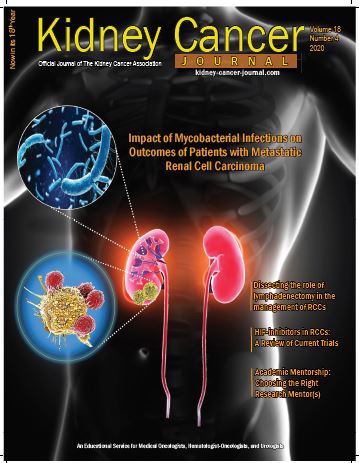Academic Mentorship: Choosing the Right Research Mentor(s)
Selecting an academic mentor is not a trivial process and warrants close attention given the potential influence on one’s research interests and career trajectory. While finding a mentor who is accomplished—academically productive and prominent in the field of kidney cancer—is preferred, this should not serve as the sole factor in selecting a mentor.1 Other important factors to consider in choosing the ideal mentor include finding someone who is:
• Respected: has good relations with others in the field
• Trusted: has a track record of successful mentoring in kidney cancer
• Accessible: has time for mentees and meets with them regularly
• Invested: shares interest and enthusiasm in mentees’ work and in developing their careers
• Funded: can provide logistical support and resources
A mentor should also serve as an advocate for mentee visibility and promotion in the form of conference presentations, coauthorship on manuscripts, and award nominations. Mentors should provide mentees with guidance, intellectual input, and thoughtful critique of their work. By constantly challenging their mentees, mentors should strive to facilitate mentees in their transition to their next career phase.

Successful mentorship is bidirectional, however, and mentees play a critical role that cannot be overlooked in the reciprocal mentor-mentee relationship.2 Mentees must show self-awareness and be cognizant of their goals, skills, and weaknesses. Mentees should prepare adequately for every meeting with their mentors, ideally by crafting a structured agenda, and demonstrate investment in the research opportunity by reading, addressing weaknesses, and meeting or surpassing mentor expectations. Furthermore, mentees should take an active role in learning how to mentor others in preparation for transitioning to the next phase of their careers.3

Finally, as kidney cancer research is largely multidisciplinary, mentees should not feel limited to only one mentor. Co-mentorship models are becoming increasingly common and offer multiple advantages. Aside from integrating varied backgrounds and experiences, co-mentorship models may enable mentees to learn about another field and may increase the impact of both manuscripts and grant applications in kidney cancer.
KEYWORDS: big data • omics • machine learning • artificial intelligence • precision oncology • renal cell carcinoma
REFERENCES
- 1. Leary JC, Schainker EG, Leyenaar JK. The Unwritten Rules of Mentorship: Facilitators of and Barriers to Effective Mentorship in Pediatric Hospital Medicine. Hosp Pediatr. 2016;6(4):219-225.
- 2. Cooke KJ, Patt DA, Prabhu RS. The Road of Mentorship. Am Soc Clin Oncol Educ Book. 2017;37:788-792.
- 3. Khan NR, Rialon KL, Buretta KJ, Deslauriers JR, Harwood JL, Jardine DA. Residents as Mentors: The Development of Resident Mentorship Milestones. J Grad Med Educ. 2017;9(4):551-554.
Disclosures: None



